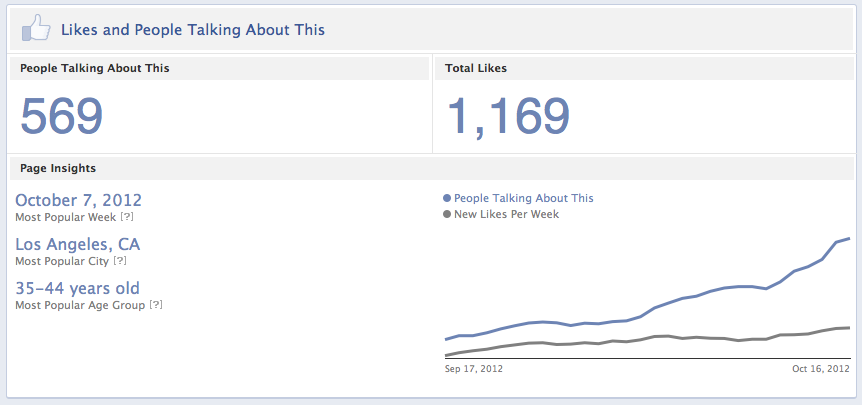Do Your Facebook Fans Really Like You?
Just last week, I again heard someone talking about the “value of a Facebook ‘like'” and I had to cringe. They were of the belief that an average Facebook like was worth somewhere in the neighborhood of $4, and they were in the process of setting goals related to the acquisition of more of them. No talk about the quality of the likes — just the belief that somehow they could be translated into revenue at the end of the day.

We are always for searching ways to simplify our lives with statistics, but sadly it seems that more often than not these statistics do us more harm than good.
The truth is that some Facebook ‘likes’ turn out to be worth thousands of dollars, while others actually do more harm than good.
A Facebook page with 100 interested and engaged fans is most likely worth far more to a business than one with 10,000 uninterested people who for one reason or another pressed the ‘like’ button. If all you care about is the number of ‘likes’ on your page, you can easily obtain them for a small fee, but where is the benefit?

Did you know that there are some easy ways others can tell if your Facebook page has recently acquired a bunch of bogus ‘likes’?
A glimpse into the recent activity of your page can be obtained (by anyone, not just administrators) by clicking the ‘Likes’ box? When that box is clicked, a new box opens that will give clues about where the activity is coming from on the page.
If your business primarily serves people in the New York metropolitan area, you probably don’t want to have most of your Facebook page activity coming from people in Asia. Sadly, there are businesses and organizations all around us where this is the case.
Many page administrators seek to increase the number of likes on their pages through the use of Facebook ads, but fail to specifically target people who may actually be interested in the business. What they get is a bunch of people from Mexico or Indonesia (or some other seemingly random location) who have zero interest in the page. Many of these bogus ‘likes’ are from people who are being paid to like and engage with pages. These people readily click on random ads like yours to obscure the identities of the pages they’re being paid to like.

Pages that misuse Facebook advertising (or worse yet, simply buy likes) create the superficial appearance that they have clout (yes, I believe clout is still spelled with a “c”) or influence — but a look at the “talking about this” number usually exposes this situation for what it is. Does your page have 1,000 likes and 8 people talking? Lights are on but nobody’s home. What’s the point of buying a community that isn’t really there?
This brings up another point. Did you know that in the week you acquire a like, you actually get credit for a person “talking about” your page? This often causes page owners (and their social media managers) to become addicted to acquiring likes — because as long as they keep acquiring, the stats look good. But when visitors to the page see no actual engagement taking place, who is fooling who?
So how do you create engagement? Well, first, you’re going to have to attract people who are interested in your business or organization and the content it is creating. Just like any other form of marketing or advertising, you want to attract people who are likely to become customers.
Are you creating content that your target audience will find interesting or valuable? Most are not. Is your business delivering a product or service people appreciate? If the answer is “no”, don’t look to social media to be your savior.
Many think great social media strategies build successful businesses. I believe it’s far more accurate to say that great business strategies provide an excellent foundation upon which a successful social media plan can be built.
Westchester social media news:
- The Advertising Club of Westchester Presents “Real World Successes (and Lessons Learned) with Social Media” — October 24, 6pm at Heineken USA in White Plains.
- The WordPress Westchester Meetup will convene at the Watercooler Hub in Tarrytown, Tuesday, November 13, at 6:30pm. The presentation will be made by D.K. Smith, and he will be discussing Monetizing Your WordPress site!
Chris S. Cornell manages several online communities in Westchester County, NY and the Hudson Valley. He consults, speaks and writes on the subject of social media, content production, marketing and public relations. You can follow Chris on Twitter at Cornell140, and you can become a part of the Westchester Social Media community on Facebook.

Adam has worked in the local news industry for the past two decades in Westchester County and the broader Hudson Valley. Read more from Adam’s author bio here.

